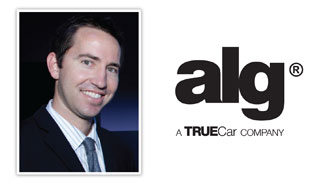ALG Weighs Used-Value Impact of Saab’s Latest News, Says New Focus on EVs Has Potential

By subscribing, you agree to receive communications from Auto Remarketing and our partners in accordance with our Privacy Policy. We may share your information with select partners and sponsors who may contact you about their products and services. You may unsubscribe at any time.
SANTA BARBARA, Calif. –
In light of the recent news from Saab and plans for the brand to focus more on electric vehicle production in the future, Auto Remarketing reached out to ALG to get their feedback on how the changes might affect used-vehicle values — as well as how the project might fare — for the OEM that declared bankruptcy earlier this year.
As announced last week, the National Electric Vehicle Sweden AB (NEVS) and the receivers of the Saab Automobile bankruptcy estate revealed they signed a purchase agreement which covers the main assets of Saab Automobile AB, Saab Automobile Powertrain AB and Saab Automobile Tools AB, and aims to focus on developing its business building electric cars for the Chinese market.
In fact, NEVS — an international consortium formed by Japanese, Swedish and Chinese stakeholders — noted it will establish a new automobile venture in Trollhättan, Sweden, solely dedicated to development and manufacturing of electric vehicles.
And the company plans to launch a new model as early as year-end 2013/2014.
And will this switch have any effect on the values of older Saab models sitting on the lots and in the driveways of consumers and dealers?
ALG’s Eric Lyman, vice president of residual value solutions, said thie refocusing of the company will not have much effect on values for the older gasoline powered Saabs.
Subscribe to Auto Remarketing to stay informed and stay ahead.
By subscribing, you agree to receive communications from Auto Remarketing and our partners in accordance with our Privacy Policy. We may share your information with select partners and sponsors who may contact you about their products and services. You may unsubscribe at any time.
And earlier this year, ALG set out to project the fallout for recently discontinued Saab, which the firm contended may have already “bottomed out” in terms of value, releasing a Whitepaper on the subject.
In its findings, ALG concluded: “The analysis reveals that the Saab nameplate has been stripped bare of much of its value, and that there may not be much more room for decline. In fact, Saab’s value seems to have bottomed out over the past few years.”
And ALG’s predictions for the brand remain the same today.
“No changes, although the used auction values have been performing slightly above our expectations since the January/February edition … However, we are not anticipating a fundamental shift in our outlook,” Lyman further explained.
That said, though the recent purchase may not change the outcome for previous gasoline equipped Saabs, Lyman noted the new EV project could benefit from the OEM name.
“The new business venture, with purely EVs, should not positively impact previous gasoline equipped Saabs. However, usage of the Saab name and heritage could give the new EV venture a head start in brand image and familiarity,” Lyman continued.
ALG analysts said that the Saab name might give this new venture the push it needs, noting that some EV start-ups have been hindered by “lack of brand recognition.”
“EVs are certainly a hot topic with a handful of emerging start-ups. Some of these start ups have had false starts and lack of brand recognition and funding are two key drivers of that failure,” Lyman explained.
“With strong financial backing and the Saab name on the hood, as well as a historical customer base of progressive, innovative and highly educated buyers, the Saab EV venture has a leg up on much of the competition,” he continued.
On top of financial backing, and the brand’s heritage boosting the venture’s potential, Lyman noted there is one more reason this project may be particularly successful: customer base.
“With strong financial backing and the Saab brand on the hood, as well as a historical customer base of progressive, innovative and highly educated buyers, the Saab EV venture has a leg up on much of the competition,” he concluded.
For more information on the recent news from Saab, see the Auto Remarketing story here.


